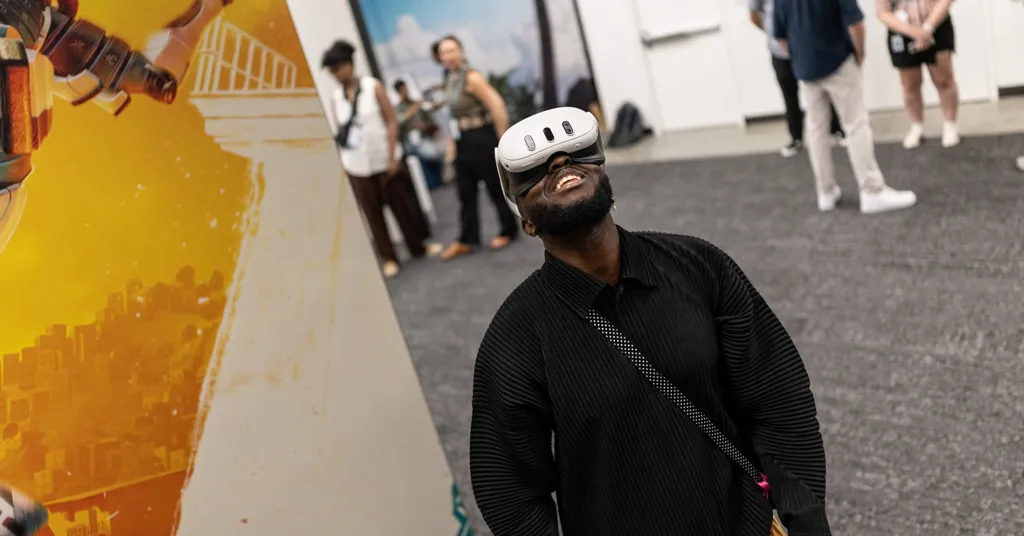MENLO PARK, California, Sept 17 (Reuters) - Meta on Wednesday launched $499 Oakley-branded smart glasses for athletes that come with a centered action camera, louder speakers and better water resistance, expanding its wearables beyond the Ray-Ban line that has been an early AI-era hit.
Dubbed Oakley Meta Vanguard, the glasses integrate with Meta's AI app and fitness platforms such as Garmin and Strava to deliver real-time training stats and post-workout summaries. They will come with nine hours of battery life and roll out first in countries such as the U.S. and Canada starting Oct. 21.
The device was unveiled at Meta's (META.O) annual Connect conference, where the company is also expected to launch its first consumer-ready smart glasses with a built-in display.
Those glasses will likely be named Celeste and be paired with Meta's first wristband for hand-gesture controls, but their expected $800 price may dissuade some buyers, analysts said. CNBC has reported the glasses could feature Prada branding. CEO Mark Zuckerberg walked on stage appearing to wear a pair, but put them away immediately.
Celeste is expected to include a small digital display in the right lens for basic tasks such as notifications. It will also offer features available on its existing Ray-Ban and Oakley smart glasses such as an AI assistant, cameras, hands-free control and livestreaming to its social media platforms.
They mark Meta's latest bid to stay relevant in the AI race, where it trails rivals such as OpenAI and Google in rolling out advanced models. Zuckerberg kicked off a billion-dollar talent war earlier this year to poach engineers from rivals and has promised to spend tens of billions of dollars on AI chips.
The launch at Meta's annual Connect conference, held at its Menlo Park, California headquarters, comes amid scrutiny over Meta's handling of child safety on its social media platforms.
Reuters reported in August that Meta chatbots engaged children in provocative conversations about sex and race, while whistleblowers said earlier this month researchers were told not to study harms of virtual reality to children.
For Zuckerberg, whose massive bet on the metaverse has so far generated tens of billions of dollars in losses, smart glasses are the ideal device for superintelligence - a concept where AI surpasses human intelligence in every possible way.
While experts and executives disagree on whether and when superintelligence can be achieved, analysts said Meta's new glasses are a step toward the planned 2027 launch of its "Orion" prototype, unveiled last year and described by Zuckerberg as "the time machine to the future."
"It wasn't long ago that consumers were introduced to AI on glasses and in recent quarters brands have also begun to include displays, enabling new use cases," said Jitesh Ubrani, research manager for IDC's Worldwide Mobile Device Trackers.
"However, consumer awareness and product availability of AI glasses with display remains limited. This will change as Meta, Google, and others launch products in the next 18 months."
IDC forecasts worldwide shipments of augmented reality/ virtual reality headsets and display-less smart glasses will grow 39.2% in 2025 to 14.3 million units, with Meta driving much of the growth thanks to demand for the Ray-Bans it makes with EssilorLuxottica.
Reporting by Aditya Soni and Echo Wang in Menlo Park, California; Editing by Sayantani Ghosh and Matthew Lewis
